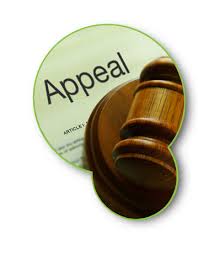Appealing a Decision of the Local Court: What to do when the Magistrate Gets It Wrong
Many criminal prosecutions in NSW are resolved in Local Court. An accused who is convicted and sentenced by a Local Court Magistrate may be unhappy with the outcome. Fortunately, the accused is entitled to pursue an appeal against the Magistrate’s decision.
For example, a Local Court gave Michael Carratt a combined sentence of 20 months imprisonment for several offences involving assault and stealing. He was not allowed parole until he served 15 months and 22 days. Carratt appealed. His lawyer argued that special circumstances justified a reduction of the non-parole period. The District Court agreed and reduced Carratt’s non-parole period by two months, hastening his release from custody.
An appeal against a Local Court conviction or sentence is often, but not always, a wise investment. Whether there are strong grounds for an appeal, and whether taking an appeal is the smart thing to do, are questions that should be posed to an experienced NSW lawyer.
Local Courts
The Local Court of New South Wales hears many criminal and traffic prosecutions and resolves certain civil disputes. There are about 160 branches of the local court in NSW.
Local Court cases are decided by a Magistrate. There is no jury trial in Local Court. Local Courts usually decide cases more quickly than District Courts, where a jury trial is available.
Local Courts hear summary offences and some indictable offences. Whether the Local Court can hear an indictable offence depends on the nature of the offence and, in some cases, the decision of the prosecutor, either alone or in concert with the accused.
Types of offences the Local Court will deal with
- Offensive conduct
- Drink driving cases
- Shoplifting
- Traffic offences, fines and licence suspension/disqualification appeals.
- Domestic Violence offences, including most offences of assault
- Possession of Drugs;
- Stealing property with a value of less than $5,000
- Malicious damage if the value of property involved is less than $5,000
- Possession of burglary tools
- Aggravated indecent assault
- Stealing property with a value of more than $5,000
- Stealing motor vehicles
- Burglary (breaking and entering) of property with a value of less than $15,000
- Dangerous driving that does not cause a death
Appeals of Local Court Decisions
There are many reasons an accused may want to challenge a decision made by a Local Court. In criminal cases, an appeal against the Local Court decision can challenge the conviction, the sentence, or both.
The appeal is to the District Court. In criminal cases, the accused has a right to appeal, provided the appeal is lodged within 28 days after the Local Court’s decision is made. It may be possible to lodge an appeal after 28 days have lapsed, but there is no longer a right to appeal after the deadline has passed. As long as you are within 3 months of the Local Court decision, however, you may still be allowed to appeal.
If the appeal is lodged within 28 days, the Local Court decision will probably be stayed. That means any punishment (other than imprisonment) will not take effect until the appeal is resolved. If imprisonment was imposed, it is possible to request bail. The sentence will be stayed if bail is granted.
District Court Consideration of Local Court Appeals
An appeal is not a new trial. In most cases, the District Court will make its decision based on transcripts of the Local Court proceedings. There is no automatic right to present new evidence, although the District Court might consider new evidence under some circumstances. A lawyer can help the accused decide whether grounds exist for basing an appeal on new evidence (such as newly discovered evidence or the inability of a witness to attend the Local Court trial).
A District Court will decide whether the Local Court Magistrate misapplied the law or decided the case unreasonably. The District Court Judge will also take a fresh view of the evidence. The District Court may decide that the evidence does not prove guilt beyond a reasonable doubt even if the Local Court Magistrate entered a conviction.
If the challenge is to the sentence, the accused may want to present evidence attesting to good character, rehabilitation, a psychological evaluation, successful completion of treatment or counseling, or other reasons to believe that the sentence imposed was too severe.
Before challenging the severity of a sentence, the accused should obtain advice about the advisability of pursuing an appeal. A District Court has the power to impose a harsher sentence than the Local Court Magistrate imposed. The District Court cannot punish the accused for appealing, but lodging an appeal carries the risk that the District Court will believe that the Local Court’s sentence was too lenient. You will, however, receive a warning before the District Court decides whether to increase the sentence.
Annulments
In some cases, it may be necessary to pursue an annulment rather than an appeal. An accused can seek an annulment of the Local Court decision if the accused was not present in court when the accused was convicted and sentenced. An annulment sets aside the conviction and sentence so that the accused can be heard in court.
Applications for an annulment are made to the Local Court rather than the District Court. The application must be lodged within two years after the conviction was entered. If an annulment application is refused, the refusal can be appealed to the District Court.
If this all sounds confusing it is. The role of a criminal lawyer is to help you weigh your options and decide what appeal process if any makes the most sense for you.







